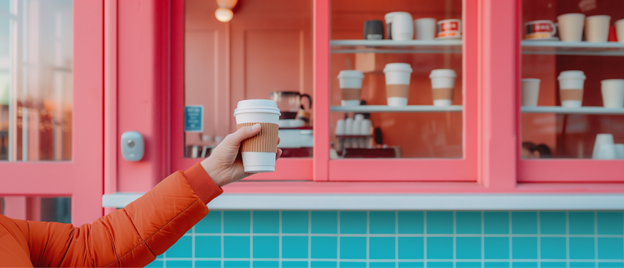In the world of design and content creation, images play a crucial role. However, finding high-quality photos without breaking the budget isn’t always easy. Fortunately, there are several platforms that offer free stock images that you can use for your personal and commercial projects.
In this article, we’ll tell you about 15 websites where you can download images for free (some with certain limitations) to use in your content. We’ve divided them into three categories: “The Usuals,” which are platforms you might already know because of their popularity and reputation; “AI-Powered,” which are those that stand out for incorporating AI to generate or modify images; and finally, “The Diverse,” for when you want content focused on gender, culture, or ethnicity.
At the end, we’ve included a bonus of 5 extra websites that you’ll never regret having 😉
THE USUALS

1. Pexels
Pexels is one of the most popular platforms for downloading free stock images. It offers a wide range of high-quality photos, as well as videos. Photographers upload their work to Pexels under the Pexels license, meaning you can use them for free for any purpose, even commercially, without the need for attribution (although it is always appreciated).
- Pros: Wide variety of images, high-quality photos, and videos, no attribution required.
- Cons: It can be difficult to find highly specific content.
2. Unsplash
Unsplash is known for its curated collection of artistic and high-resolution images. The photos on Unsplash tend to be more aesthetic and artistic, making them perfect for websites, blogs, and social media. Like Pexels, the images can be used for free for any purpose, without the need for attribution.
- Pros: High-quality, artistically styled images, ideal for visually appealing designs.
- Cons: It is probably the most well-known platform, so there’s a risk that others might be using the same image as you.
3. Pixabay
Pixabay offers over 2.6 million free photos, videos, illustrations, and vectors. All images are under the Pixabay license, which allows you to use them freely in any medium, including commercial purposes, without the need for permission or attribution. Additionally, Pixabay includes options like royalty-free music and sound effects.
- Pros: Extensive collection that includes photos, videos, illustrations, and music.
- Cons: Quality can vary, as it includes both high-quality images and more common ones.
4. Gratisography
Gratisography is ideal if you’re looking for creative and unique images. The photos on this platform are captured by photographer Ryan McGuire and are available for free use in any project. Gratisography stands out for its focus on fun, unusual, and artistic images, perfect for projects that need a distinctive touch.
- Pros: Unique and creative images, all free.
- Cons: The collection is smaller and may not always include conventional content.
5. Burst (by Shopify)
Burst is a platform created by Shopify to help entrepreneurs find high-quality images for their online businesses. Although it’s geared towards sellers, anyone can download and use Burst photos for free. The images are organized into useful collections such as “online business,” “fashion,” “food,” among others.
- Pros: Thematic collections geared towards businesses, high quality.
- Cons: More focused on commercial and ecommerce images.
AI-POWERED

1. Lummi
Lummi.ai is an image generation platform that uses artificial intelligence to create personalized visual content in minutes.
- Pros: Allows you to create custom images using AI, which is ideal for those looking for unique content without advanced design skills.
- Cons: Since the images are generated automatically, the final quality may not always be consistent or comparable to images created by humans.
2. Artbreeder
Artbreeder.com is a collaborative platform that allows users to combine and modify images using AI to create unique visual results.
- Pros: You can create everything from landscapes and portraits to abstract art, making it versatile for different types of projects. The interface is intuitive and accessible, even for those without design experience.
- Cons: While you can use the generated images, the licensing may be confusing, especially if you plan to use them in commercial projects. As an AI-based tool, some image combinations may produce unexpected or undesired results.
Icons8 Moose is a platform offering a vast library of high-quality images and photos, some of which are generated by AI, available both for free and through subscription.
- Pros: The platform covers a wide range of categories, making it easy to find images that fit your needs. Icons8 also offers icons, illustrations, and music, allowing for a more integrated workflow for designers.
- Cons: While there is free content, many resources require a subscription, which can be a drawback for those seeking completely free solutions. Although the platform is powerful, the curation of images may not always meet very specific or niche needs.
4. Designify
Designify is an automatic editing tool that uses AI to transform and optimize images, ideal for marketing and ecommerce.
- Pros: With just a few clicks, you can turn ordinary images into visually appealing content without advanced editing skills.
- Cons: While it’s excellent for quick editing, those seeking detailed control over every aspect of editing might find the options limited. Additionally, the automation relies on predefined templates, which may limit originality in some projects.
5. This Person Does Not Exist
This Person Does Not Exist is a website that generates realistic portraits of fictional people using a Generative Adversarial Network (GAN).
- Pros: It generates portraits of non-existent people, which is useful for projects where privacy and originality are key. The platform is completely free, and each page refresh generates a new face, making it extremely accessible.
- Cons: This tool is limited to generating human faces, which may not be sufficient for projects requiring more visual diversity. Although most faces are realistic, some may have imperfections or anomalies that may not be suitable for all uses.
THE DIVERSE

1. Nappy
Nappy is a stock image platform that offers free photographs of Afro people in everyday situations. Its goal is to diversify the available images for content creators, designers, and brands, helping to eliminate stereotypes and authentically represent the Afro community.
- Pros: By focusing exclusively on images of Afro-descendant people, it helps fill a gap in traditional stock image offerings. The images are available for free for both commercial and personal use, making them accessible for a wide range of projects.
- Cons: Compared to larger stock platforms, the number of images available on Nappy is limited, which could be a challenge when searching for specific images.
2. Gender Spectrum Collection
Gender Spectrum Collection, created by VICE, is a library of free images representing transgender and non-binary people. The collection is designed to challenge stereotypical gender representations and provide an inclusive alternative for designers and content creators.
- Pros: The photos are not only high quality but also depict people in everyday contexts, helping to demystify clichés.
- Cons: As it focuses solely on gender diversity, this platform may not cover other areas of diversity that some projects might need.
3. WOCinTech Chat en Flickr
WOCinTech Chat is a Flickr collection featuring women of color in technology. The platform aims to break stereotypes in the tech industry by showcasing women from various ethnic backgrounds working in a tech environment.
- Pros: Provides crucial representation of women of color in technology, a group often underrepresented in conventional stock images.
- Cons: Although the images are free, they require attribution, which can be a drawback for some commercial or editorial projects.
4. Picnoi
Picnoi is a stock image platform that specializes in representing Afro and other underrepresented communities. Its goal is to provide authentic images that celebrate racial and cultural diversity.
- Pros: Offers a variety of images representing people from different ethnicities, cultures, and contexts, helping to create more inclusive content.
- Cons: While some images are available for free, many require a subscription or purchase, which might be a barrier for those seeking completely free solutions.
5. Age-Positive
Age-Positive Image Library is a photo library focusing on the representation of people over 50 years old. The platform offers free photos showing older adults engaged in various activities, challenging stereotypes of aging.
- Pros: Focuses on a demographic often overlooked in stock images, depicting older adults in positive and active contexts.
- Cons: The art direction may be somewhat basic, making some of its images feel less professional or interesting.

BONUS 🙂
- https://stocksnap.io/ (Free)
- https://kaboompics.com/ (Free)
- https://isorepublic.com/ (Free)
- https://pikwizard.com/ (Free)
- https://www.lifeofpix.com/ (Free)
